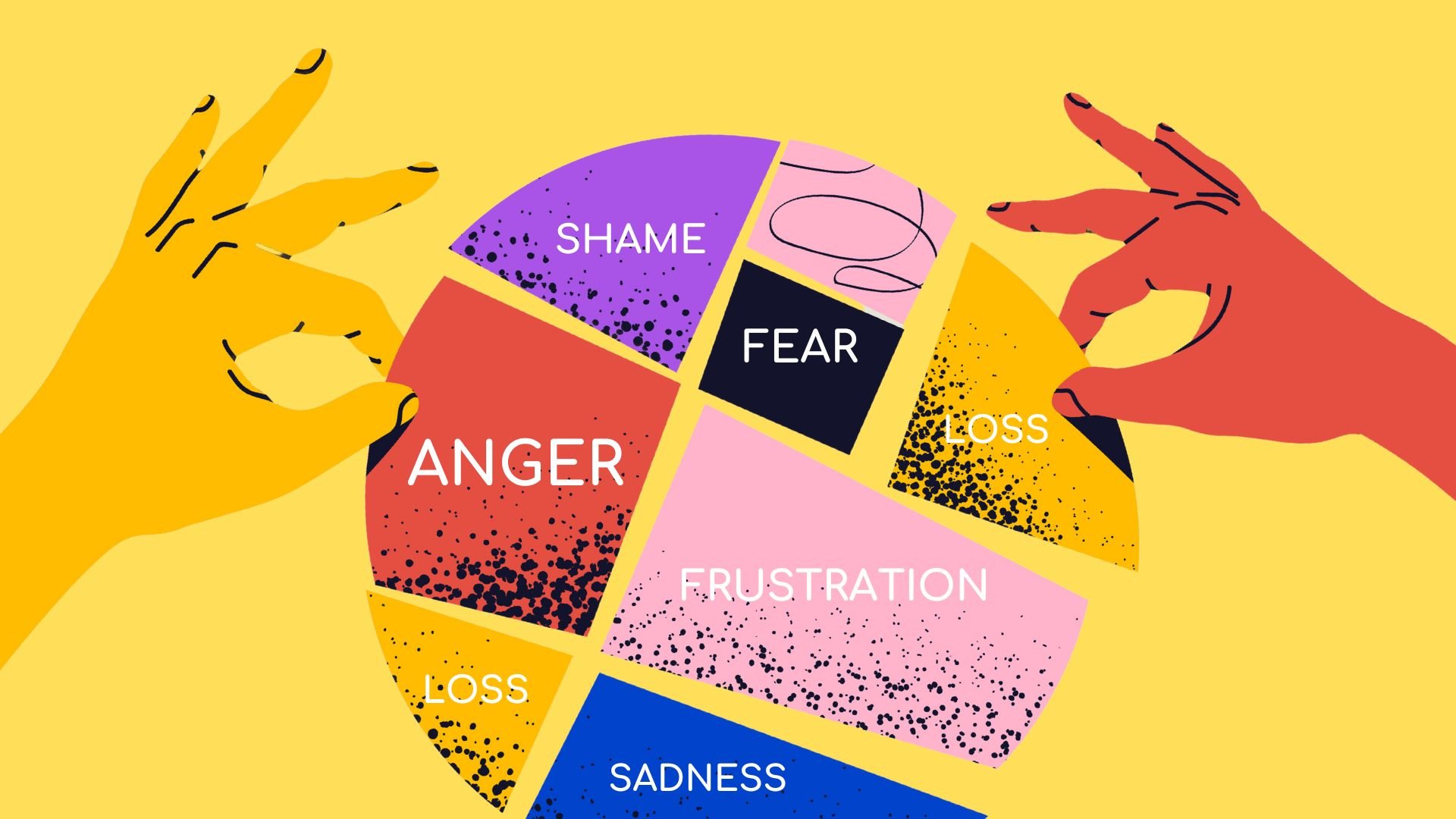Emotionally Focused Therapy for Couples
EFT is one of the most-researched and most-effective framework for conducting couples therapy.* Is it right for you?
“ In Emotionally Focused Therapy emotions are a compass. What we have learned is to go into them in a safe way. ”
DR. SUE JOHNSON
We understand it can be unsettling or even frightening to discuss relationship problems and we hope that this information may ease your fears if you are considering relationship therapy.
There are many types of couples therapies available, but in this instance, we will be looking at Emotionally Focused Therapy (EFT) for Couples and what you can expect.
EFT as the name suggests, explores emotions.
The English language has hundreds of words for emotions, but the six ‘core’ emotions are:
ANGER/RAGE
JOY/ELATION
SADNESS/DESPAIR
FEAR/ANXIETY
SHAME/DISGUST
SURPRISE/CURIOSITY
PRIMARY ‘CORE’ EMOTIONS AND SECONDARY ‘REACTIVE’ EMOTIONS:
Most people are unaware of or hide their primary emotions. Primary emotions are deep, tender, unacknowledged emotions such as shame, sadness and fear.
In particular, FEAR - a primary or core emotion - is often acted out in as ANGER - a reactive or secondary emotion.
Secondary emotions are the emotions most often expressed during an interaction. Anger is the most common secondary ‘reactive’ emotion in distressed relationships and it is reactive emotions that push partners away and cause relationship problems.
However, it is the expression of core emotions that usually pulls partners closer together. When partners see the open expression of vulnerable emotions they often feel tender and caring toward their partner, helping to de-escalate the anger and the fear behind it.
Why is this important?
When someone senses a relationship is at risk the most common primary emotional reaction is fear.
When humans detect a threat, the signals go to various parts of the brain.
This triggers the adrenal glands to release hormones such as epinephrine (adrenaline). The body instantly responds with increased blood flow, heart rate, breathing, and sweating, all preparing the body to quickly retreat or attack (“fight or flight”). This process happens at a biochemical level that we are unaware of, yet is so powerful it allows us to instantly jump out of the way of a runaway car. These hormonal responses also heighten the emotions. When you feel threatened, your emotions are on high alert and can feel overwhelming.
In modern society we now use our fear response to react almost entirely to emotional threats, rather than physical threats. We tend to respond to imagined danger, rather than real danger. And that imagined danger tends to center on our relationships with others, especially if we feel we are at risk for rejection by a partner.
As mentioned, fear is considered a primary or core emotion. Core emotions are often acted out in as reactive or secondary emotions such as anger or frustration. Reactive emotions push a partner away and cause relationship problems, while the expression of core emotions usually pulls partners closer together.
The more you can recognize and calm your immediate fearful reaction when you feel a primary emotion of fear, loss, shame or rejection, then the more likely you will be to have successful relationships. You will be less likely to feel or express feelings of being rejected like “you are never there for me” or “I am never good enough for you.”
Emotionally Focused Therapy was popularized by psychologist Dr. Sue Johnson, author of Hold Me Tight, and focuses on the idea that couples must establish an “attachment bond” — a feeling of emotional safety with each other.
We know that close, connected relationships can actually reduce anxiety and fear by easing our primal fear of abandonment.
Strong, attached relationships reduce feelings of fear (threat activation) and help “calm the brain”. Attachment to others is our primary protection against feelings of helplessness and meaninglessness. Those who feel the safety of a comforting relationship actually are more resilient in life and can go out and take more risks. In fact, research shows that emotional isolation is more dangerous for our health than smoking or a lack of exercise. Quite simply, loving and being loved makes one stronger. Those who have trust in each other can turn to each other in distress and this creates even more emotional safety.
All relationships have times when they have breaks in their connection that need to be repaired. Conflict is natural in human relationships. However, conflicts aren’t the problem, it’s that they are not repaired soon enough or with emotional connection. It’s not conflict but disconnection that sinks relationships.
“The way individuals connect with the people close to them reveals what they’ve learned from past relationships. The problems they have in establishing and maintaining bonds are informative. On the simplest level, these problems demonstrate whether they’ve learned that relationships are safe and people can be trusted, or that being close to others is dangerous and people are likely to end up hurting you….It’s a cognitive shift for most people to understand that almost all negative behavior is the result of psychic injuries that have not healed. Being quick to anger or excessively self-absorbed, for example, is more often a symptom of unhealed wounds than a character defect. When people are mistreated, especially as children, they don’t know they’ve sustained a hit that strongly shapes the way they will connect to friends and other intimates in the future.”
EFT focuses on the PROCESS of your relationship, the emotions and patterns within it.
Key concepts of EFT for Couples
Develop a secure, safe and loving attachment by:
Understanding and shifting emotional responses during challenging time and crisis.
Creating new ways of communicating and responding to each other’s needs and fears.
Improving coping skills and stress management.
EFT is not designed to encourage excessive arguing or conflict.
Do not come to sessions armed with long lists of faults you want to discuss about your partner. That is not the process used in EFT. Focusing on the content of arguments - like who forgot to close the garage door - misses the forest for the trees from an EFT perspective. Instead, it’s about building an understanding about the underlying context and emotions at play that have brought those struggling in a relationship to therapy.
In fact, an EFT therapist should actively regulate confrontational behavior in therapy, because the goal is to make the relationship feel emotionally safer and more connected. In addition, an EFT therapist generally avoids showing favoritism, passing judgments, or offering opinions about the future of the relationship, although he or she may gently challenge an individual at times.
Emotionally Focused Therapy (EFT) will involve discussing specific incidents that may occur in your relationship.
Again, this is not to cast blame, but merely a way to help each of you learn about your emotions and the behaviors that result from those incidents.
For example, you may be asked to discuss how your partner reminding you to ‘pick up after yourself’ makes you feel. Do you feel angry? What else might you feel? Are you ashamed because you forgot, so that makes you want to lash out in anger? Do you feel judged as “not good enough” by your partner and that makes you feel as if you disappointed them? Does this then make you want to pull away from them?
What these ‘typical’ fights are really about is the emotional safety in our relationship and our subjective sense of our partners’ intentions and feelings. We start to question the relationship internally. Does my partner care about me? Is my partner there for me? Ultimately, it all comes down to the fear that we will get hurt in our relationship.
An EFT therapist focuses on helping you map out your specific emotional needs and how your partner can meet them. In simpler terms, it’s about helping each of you to develop more awareness — about what you are feeling and how to communicate them — so your emotions don’t leave you stuck in negative patterns of behaviour. This ability is important not only in order to learn where you’re stuck today, but gives you the skills you need to clear up issues when they arise tomorrow.
Western culture teaches us to be independent, strong, and self-sufficient. However, this goes against human biology.
We are encoded to turn to each other for help both with physical tasks and emotional support.
The strongest of us know how to be vulnerable and turn to others as a resource, especially for comfort and reassurance. Vulnerability promotes contact and trust in relationships. Lack of vulnerability creates distance, which is unhealthy for relationships.
Securely attached people can seek support when they are distressed and know how to ask for their needs to be met in way that pulls their partners toward them.
Both partners need to be: accessible, responsive and emotionally engaged. If you can come to sessions with an accepting attitude, a warm heart and as much emotional openness as you can muster, then Emotionally Focused Therapy might be a good fit for you. We realize that this can be difficult to generate in the midst of a relationship that may be in turmoil, but you may achieve the best results if you do.
We’re here if you need help.
Therapy is a valuable tool that can help you to solve problems, set and achieve goals, or teach you new ways to track your emotions and keep yourself in check. It can help you to build the life, career, and relationship that you want. Does everybody need it? No. But if you are curious about working with a therapist, that curiosity is worth pursuing.
We know it takes a great amount of courage to examine your life and to decide that there are things you would like to change. And, it takes more courage to do something about it. We can help. We offer free consultations for anyone in Ontario considering individual or couples counselling, online at The Dot. We will go through any of your questions and concerns to help you decide whether online counselling is the right choice for you.
SOURCES
ICEEFT What is EFT?
YOUTUBE Sue Johnson Emotionally Focused Couples Therapy (EFT) in Action Video
Psychology Today Emotionally Focused Therapy


